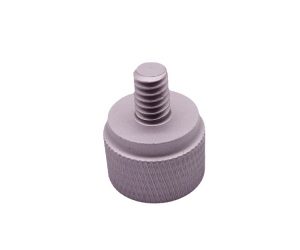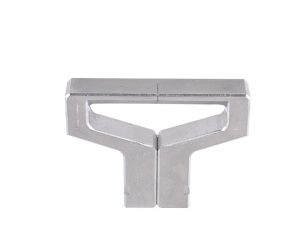Polypropylene (PP) plastic is a widely used thermoplastic material known for its excellent mechanical properties, chemical resistance, and recyclability. It’s employed across various industries, from packaging to automotive, medical devices, and consumer products. In this article, we will dive deep into PP plastic injection molding, exploring its benefits, challenges, and best practices to achieve high-quality products.
What is PP Plastic Injection Molding?
PP plastic injection molding is a process in which molten polypropylene is injected into a mold cavity under high pressure. The material cools and solidifies into the desired shape, forming a finished part. This process is commonly used to produce high-precision, complex, and durable products in large volumes. PP’s low viscosity allows for easy flow, making it ideal for molding intricate parts.
Injection molding offers high accuracy, speed, and cost-effectiveness, particularly for mass production. The molds, typically made from steel or aluminum, are designed with cooling channels to quickly solidify the molten plastic and allow for rapid part ejection.
Applications of PP Plastic Injection Molding
PP plastic injection molding is used in various industries due to its versatility. Some of the key applications include:
1. Packaging
- Applications: Food containers, beverage bottles, caps, cosmetic packaging.
- Benefits: PP provides excellent moisture, oxygen, and chemical resistance, making it suitable for packaging applications that require durability and long shelf life. It is also lightweight, cost-effective, and can be easily recycled.
2. Automotive
- Applications: Bumpers, dashboards, interior panels, and door handles.
- Benefits: PP’s impact resistance, low density, and high stiffness make it ideal for automotive parts that need to endure stress, heat, and wear while keeping the vehicle's weight low.
3. Medical
- Applications: Syringes, catheters, surgical instruments, implants.
- Benefits: PP plastic’s resistance to chemicals, moisture, and its ability to be sterilized makes it a go-to material for medical applications. Its high biocompatibility ensures patient safety.
4. Consumer Goods
- Applications: Toys, household goods, furniture.
- Benefits: PP is durable, lightweight, and can be molded into various shapes, colors, and finishes, making it ideal for mass-producing consumer products such as toys or kitchen items.
5. Industrial
- Applications: Storage containers, crates, and industrial components.
- Benefits: PP’s durability and resistance to wear and tear, chemicals, and heat make it perfect for tough industrial applications.
Advantages of PP Plastic Injection Molding
1. High Strength and Durability
- PP has high tensile strength and impact resistance, making it suitable for applications requiring toughness and longevity. Its resistance to chemicals, moisture, and wear makes it ideal for demanding environments.
2. Cost-Effective Production
- PP is one of the most economical plastics available, and injection molding can efficiently produce high volumes of parts with minimal waste, significantly reducing the cost per unit.
3. Versatility
- PP is available in various grades that can be tailored for specific applications, such as copolymers for better impact resistance or random copolymers for enhanced clarity. The plastic can also be colored, textured, and finished to meet aesthetic and functional needs.
4. Recyclability
- PP is highly recyclable, making it an environmentally friendly option. The material can be reprocessed into new products, helping reduce plastic waste and promoting sustainability.
Challenges of PP Plastic Injection Molding
While PP injection molding offers many benefits, there are certain challenges that manufacturers need to overcome:
1. Shrinkage
- PP has a relatively high shrinkage rate when cooling, which can lead to dimensional inaccuracies. This can cause issues like warping or deformation. To counter this, careful mold design and cooling channel optimization are required.
2. Moisture Sensitivity
- PP is hygroscopic, meaning it absorbs moisture from the air. This can degrade its properties and affect the flowability of the material. Drying the resin before molding is essential to avoid defects like bubbles or poor surface finish.
3. Flow Marks
- Flow marks can appear on the surface of the molded parts when the resin flows unevenly through the mold cavity. These marks can affect the product’s appearance. Proper mold design and optimized injection parameters can help reduce flow marks.
4. Weld Lines
- Weld lines occur where two or more streams of molten PP meet in the mold cavity. These seams can weaken the final part’s structural integrity. Adjusting mold design and injection parameters can minimize weld line formation.
Best Practices for PP Plastic Injection Molding
To optimize the injection molding process for PP plastic, manufacturers should adhere to several best practices:
1. Material Selection
- Choosing the Right Grade: Depending on the application, select the appropriate PP grade. For example, PP homopolymer offers high stiffness and strength, while PP copolymer provides better impact resistance.
- Moisture Control: Dry PP resin before molding to ensure minimal moisture content (below 0.2% by weight), preventing defects caused by absorbed moisture.
2. Mold Design
- Venting and Cooling: The mold should be designed with adequate venting to prevent air entrapment and with cooling channels to ensure efficient solidification. Proper cooling helps reduce cycle times and ensures uniform part quality.
- Gate Placement: Optimize the location and design of gates to reduce the occurrence of weld lines. A strategically placed gate helps ensure even filling and reduces defects.
3. Injection Parameters
- Temperature: The melt temperature for PP should be between 200°C and 250°C, and the mold temperature should range from 20°C to 80°C depending on the part geometry.
- Pressure: Injection pressure should range from 50 MPa to 150 MPa to ensure proper filling without causing excessive stress or flash. Holding pressure should be lower than injection pressure.
- Speed: The injection speed should be fast enough to fill the mold before the material solidifies but controlled to avoid turbulence or shear stress. The speed should range between 50 mm/s to 150 mm/s.
- Cycle Time: The overall cycle time should be optimized for productivity. For PP, this typically falls between 15 s to 90 s, depending on part thickness and complexity.
4. Process Optimization
- Cooling Time: PP parts require adequate cooling time to fully solidify, typically between 10 to 60 seconds. Ensure that cooling is uniform to avoid warping or shrinkage.
- Injection Time: The injection time should be minimized to reduce plastic degradation and energy consumption. A typical range is between 0.5 to 5 seconds.
Conclusion
PP plastic injection molding is a powerful manufacturing process that enables the creation of high-quality, durable, and cost-effective plastic parts. With its numerous benefits such as strength, versatility, and recyclability, PP is a go-to material for many industries, including packaging, automotive, medical, and consumer goods. While challenges like shrinkage, moisture sensitivity, and weld lines can arise, following best practices in material selection, mold design, and process optimization can lead to high-quality results.
If you're looking to manufacture parts using PP plastic injection molding, it's essential to work with experienced professionals who can help you optimize the design and production process. With the right approach, PP plastic can deliver outstanding performance, reliability, and sustainability for your projects.
Contact Us
If you want to learn more about PP plastic injection molding or need professional assistance with your project, contact us today. With over 20 years of experience, our team can help you with material selection, mold design, process optimization, and quality control. We are committed to delivering custom injection-molded parts with the highest quality and efficiency. Get in touch now for a consultation and free sample!

